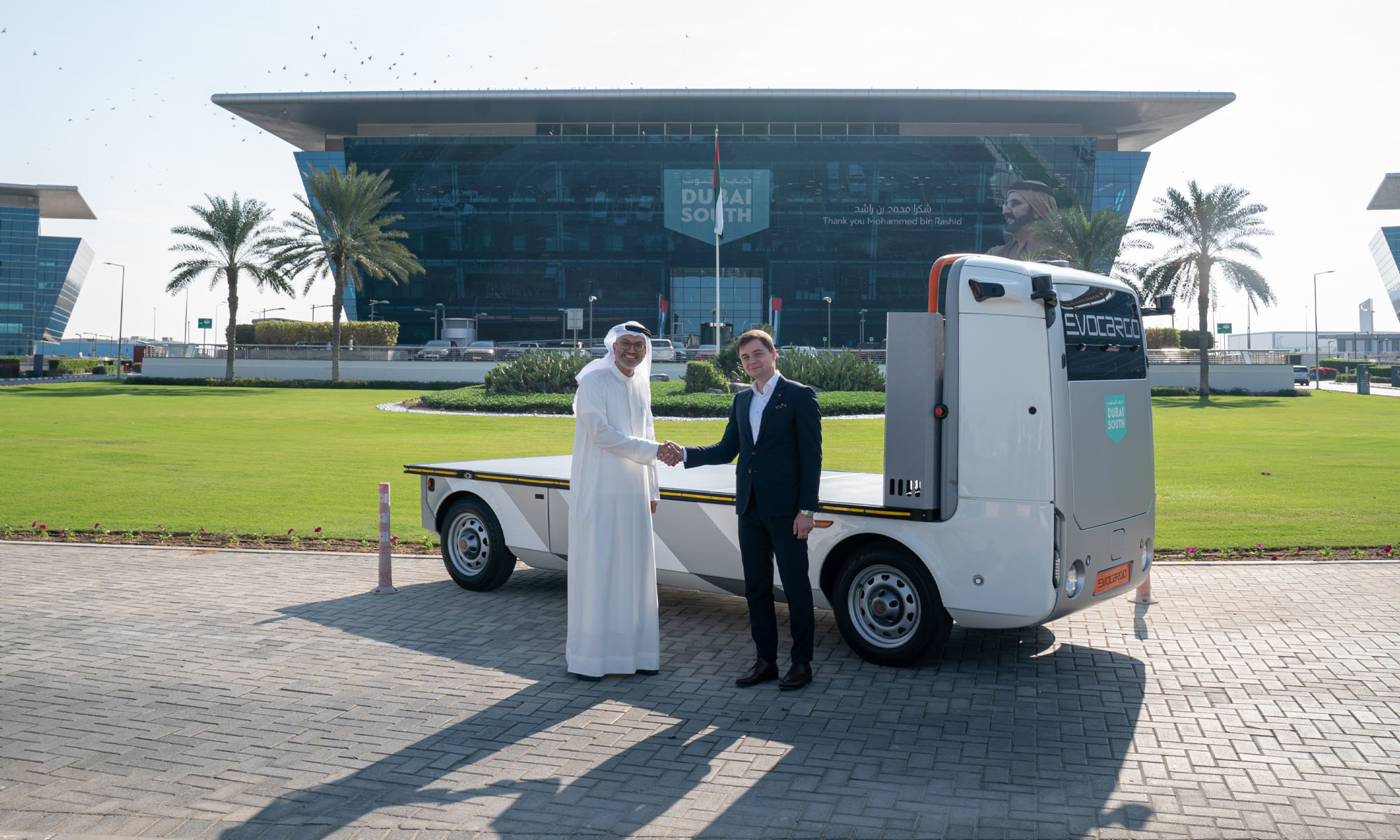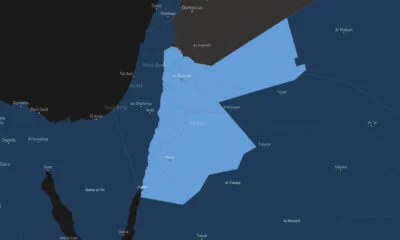News
Initial Trials Of Dubai’s Driverless Evocargo Trucks Completed
Testing was announced on July 17, and the completion is a major milestone towards upgrading the region’s logistics infrastructure.

A Dubai-based company has completed the initial trials for the UAE’s first driverless trucks. The groundbreaking achievement by Evocargo, partnering with Dubai South, took place at Dubai South Logistics District, and marked a significant step towards incorporating autonomous technologies into the region’s wider logistics infrastructure.
Announced on Wednesday, July 17th, the trials featured the Evocargo N1 unmanned electric truck navigating a predetermined route within a controlled setting. The test involved interactions with common road obstacles such as cars, trucks, and pedestrians, aiming to evaluate the vehicle’s hardware and software reliability, accident prevention systems, and overall readiness for public road use.
Officials were keen to highlight that this accomplishment aligns with the UAE’s ambitious strategy to position itself as a global leader in innovation and technology adoption. The country aims to have 25% of all transportation in Dubai autonomous by 2030, underscoring its commitment to revolutionizing the logistics sector using advanced technologies.
Mohsen Ahmad, CEO of the Logistics District at Dubai South, emphasized the importance of the collaboration with Evocargo in enhancing the region’s logistics capabilities. He noted that autonomous vehicles are set to increase efficiency, reduce carbon emissions, and establish a sustainable logistics infrastructure that will benefit both Dubai and the wider UAE.
Also Read: Riyadh Developers Reveal New 45,000-Seat Murabba Stadium
Ahmed Al-Ansi, CEO of Evocargo Autonomous Logistic Services, also expressed optimism that the trials will draw new customers and investments across the Gulf Cooperation Council (GCC) countries. The partnership aims to lead in innovative tech solutions, further establishing the UAE as a pioneer in autonomous transportation.
The successful completion of the trials marks a crucial step towards realizing the UAE’s vision for a technologically advanced and sustainable future in which autonomous vehicles are expected to play a pivotal role in global logistics.
News
Google Releases Veo 2 AI Video Tool To MENA Users
The state-of-the-art video generation model is now available in Gemini, offering realistic AI-generated videos with better physics, motion, and detail.

Starting today, users of Gemini Advanced in the MENA region — and globally — can tap into Veo 2, Google’s next-generation video model.
Originally unveiled in 2024, Veo 2 has now been fully integrated into Gemini, supporting multiple languages including Arabic and English. The rollout now brings Google’s most advanced video AI directly into the hands of everyday users.
Veo 2 builds on the foundations of its predecessor with a more sophisticated understanding of the physical world. It’s designed to produce high-fidelity video content with cinematic detail, realistic motion, and greater visual consistency across a wide range of subjects and styles. Whether recreating natural landscapes, human interactions, or stylized environments, the model is capable of interpreting and translating written prompts into eight-second 720p videos that feel almost handcrafted.
Users can generate content directly through the Gemini platform — either via the web or mobile apps. The experience is pretty straightforward: users enter a text-based prompt, and Veo 2 returns a video in 16:9 landscape format, delivered as an MP4 file. These aren’t just generic clips — they can reflect creative, abstract, or highly specific scenarios, making the tool especially useful for content creators, marketers, or anyone experimenting with visual storytelling.
Also Read: Getting Started With Google Gemini: A Beginner’s Guide
To ensure transparency, each video is embedded with SynthID — a digital watermark developed by Google’s DeepMind. The watermark is invisible to the human eye but persists across editing, compression, and sharing. It identifies the video as AI-generated, addressing concerns around misinformation and media authenticity.
While Veo 2 is still in its early phases of public rollout, the technology is part of a broader push by Google to democratize advanced AI tools. With text-to-image, code generation, and now video creation integrated into Gemini, Google is positioning the platform as a full-spectrum creative assistant.
Access to Veo 2 starts today and will continue expanding in the coming weeks. Interested users can try it out at gemini.google.com or through the Gemini app on Android and iOS.
























